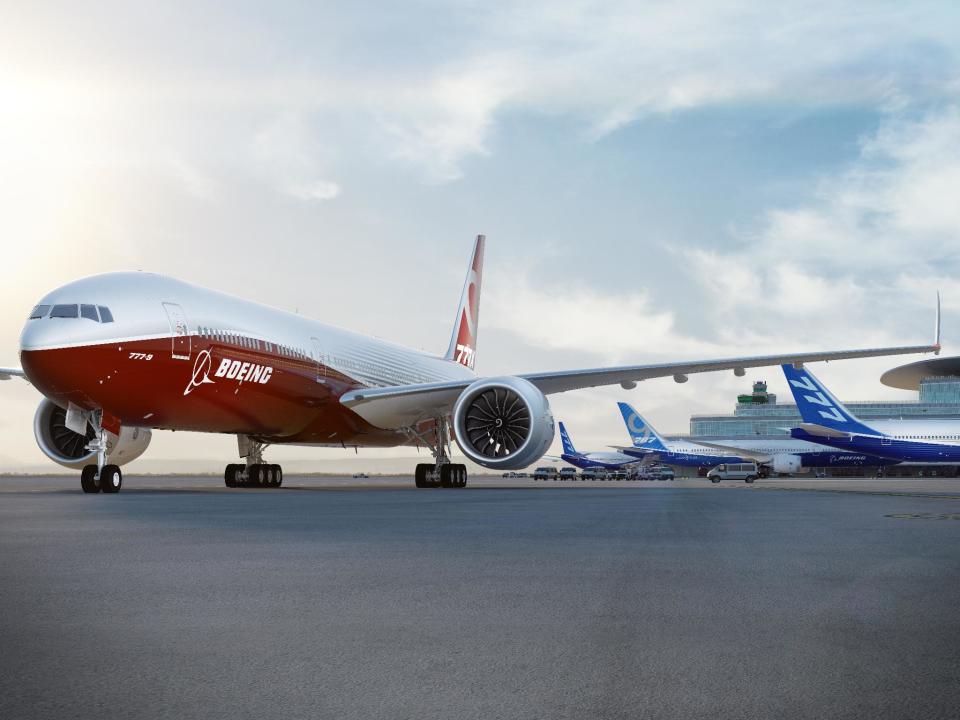Stock Market News: Boeing Flies Despite MAX Charge; Microsoft Floats on Cloud 9
Wall Street enjoyed a modest rally on Friday, as earnings season brought good news to the stock market. As of 11 a.m. EDT, the Dow Jones Industrial Average (DJINDICES: ^DJI) was up 68 points to 27,291. The S&P 500 (SNPINDEX: ^GSPC) gained 3 points to 2,998, and the Nasdaq Composite (NASDAQINDEX: ^IXIC) rose 12 points to 8,219.
Some high-profile news among top companies made for some big moves in share prices. Boeing (NYSE: BA) managed to post a gain even after announcing just how much the grounding of its 737 MAX will cost the aerospace giant. Meanwhile, Microsoft (NASDAQ: MSFT) added to its status as the stock market's most valuable company in the wake of its second-quarter financial results.
Boeing pays the price, but shareholders don't flinch
Shares of Boeing rose between 3% and 4% even in the wake of the aircraft manufacturer revealing its initial estimate of the cost of the grounding of its 737 MAX model. Even though the episode will cost Boeing billions, investors seemed to be relieved that the numbers weren't even higher -- at least based on these early figures.

Boeing said it would take an after-tax charge of $4.9 billion, which works out to $8.74 per share, in connection with the concessions and other consideration it expects to pay to customers as a result of the grounding. The aerospace giant said that revenue and pre-tax earnings would drop an even larger $5.6 billion as a result of what it will pay. Even though Boeing is taking the charge now, it expects actual payouts to take years to resolve and come in a number of different forms.
Yet that's not all Boeing will have to pay. Because of expected slower production rates for the 737 MAX in the future, the aircraft giant's cost estimate for total production rose by $1.7 billion during the second quarter. Boeing sees the resulting reduced profit margin continuing in future quarters as well.
Not everyone agrees that these numbers will prove to be the final total. Boeing assumes that the 737 MAX will return to service early in the fourth quarter of 2019, with a ramping up in production taking place over the coming year or so. More importantly, the company hasn't yet come up with an estimate of what it will have to pay victims of the two 737 MAX aircraft crashes, nor has it accounted for fines to regulatory agencies. Even so, shareholders seem to feel better having at least an early approximation of what the financial damage to Boeing is likely to be.
Another win for Microsoft
Shares of Microsoft gained about 1.5% following the tech giant's fiscal fourth-quarter financial report. The software company's results continued its string of solid performance, and investors are reacting by sending the stock once again to new record levels.
Microsoft's headline numbers showed impressive growth. Revenue was higher by 12% from year-ago levels, and adjusted net income gains of 21% helped produce a record fiscal year for the tech giant. Some of the strongest gains came from the company's fast-growing cloud computing business, as commercial cloud revenue saw a 39% rise year over year. A 64% jump in revenue from Microsoft Azure showed just how important the cloud has become to the company.
CEO Satya Nadella only sees the good times continuing. He stated, "[Microsoft's] commitment to our customers' success is resulting in larger, multi-year commercial cloud agreements and growing momentum across every layer of our technology stack."
Just about the only weak spot in Microsoft's business came from its gaming division, where sales were down 10% due in part to a drop in Xbox software and services revenue. Yet with so many things going right for the company, Microsoft investors seem happier than ever at just how well the business is executing to take advantage of tech opportunities in the cloud.
More From The Motley Fool
Teresa Kersten, an employee of LinkedIn, a Microsoft subsidiary, is a member of The Motley Fool's board of directors. Dan Caplinger owns shares of Boeing. The Motley Fool owns shares of and recommends Microsoft. The Motley Fool has the following options: long January 2021 $85 calls on Microsoft. The Motley Fool has a disclosure policy.

 Yahoo Finance
Yahoo Finance 